The Appeal of Scented Candles
Who of us haven’t indulged in the pleasure of scented candles in the home? They can infuse a room with delicious fragrance, or add a romantic ambiance to a meal and of course make bath time more relaxing and luxurious. Sales of scented candles have soared in recent years as they have come to represent the ultimate expression of ‘me’ time.
As such, scented candles are a favorite indulgence of many households, but did you know that their fumes are as toxic as cigarettes? Burning low quality commercial candles in your home can cause serious illness to you, your family and your pets.
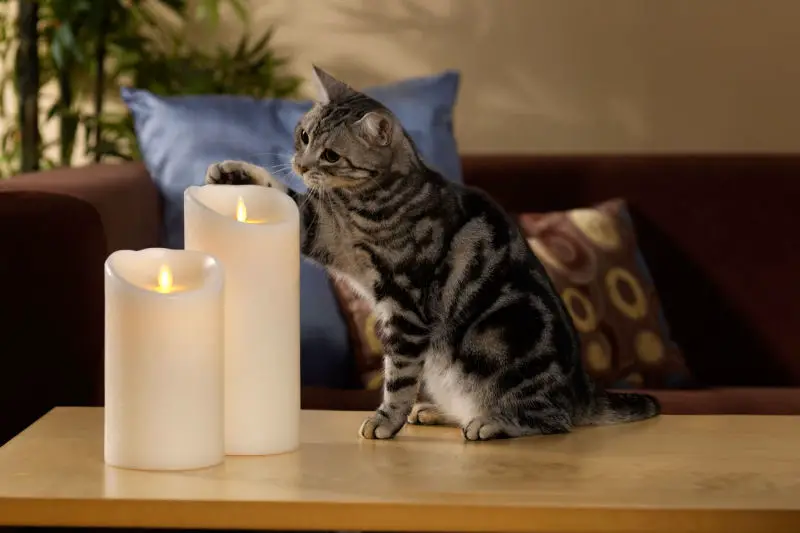
The Dangers
The problem is that most commercial candles are made of paraffin which comes from petroleum, and therefore it’s neither sustainable nor environmentally-friendly. Paraffin is the final residue left from refining crude oil. It’s made from the sludge in the bottom of a barrel of oil which is then bleached by adding dioxin and other poisonous chemicals and then texturized with a chemical called acrolyn. And afterwards, stearic acid, a byproduct of the meatpacking slaughterhouses, is added as a hardener.
Adding insult to injury, many paraffin candle manufacturers also add animal fats to give their candles a more textured or rustic look.
Would you burn animal fat in your home?
Most of us would answer an emphatic “No!” or “Yuck!” to that question, but like something straight out of a horror movie, you might react in horror to realize that you probably are burning animal fat in your home when you burn paraffin candles.
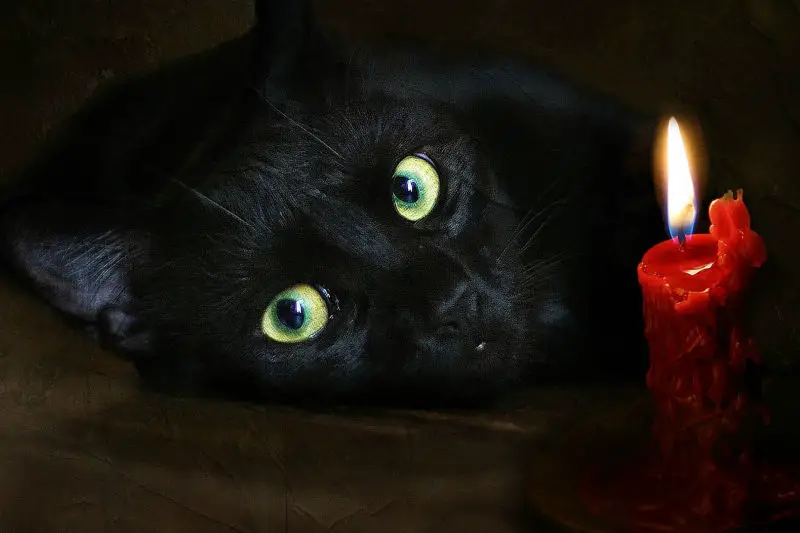
Tamar from I HAVE CAT says…
“I was shocked to learn that not only is burning candles bad for your health and that of your pets, but that they often contain animal fat! This is particularly disturbing to me given I’m a vegetarian.”
Paraffin wax has become the leading wax for use in cosmetics, food and candle manufacturing because it’s cheap and readily available.
Paraffin candles cannot be scented with natural essential oils because the petrochemical rich wax will break them down. This has forced the candle industry to create petroleum-based fragrances that are more compatible. When these fragrances are added to the mix, a lot more soot and chemicals are released. This creates a further negative effect on our health. The toxins released by some of these petroleum-based scents can be even worse than the wax itself!
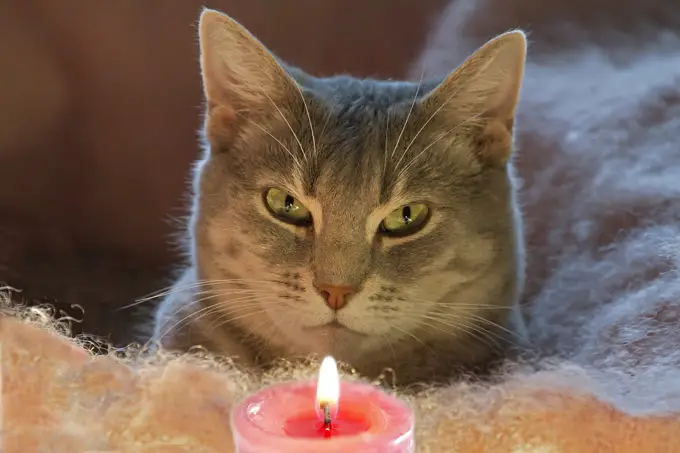
The Health Risks
When you burn paraffin candles, you might as well be inhaling diesel fumes. Studies by air quality engineers at The Florida Department of Health found that the fine particulate matter collected from candle emissions was similar to that of diesel engine exhaust. Soot, in high levels, can be seen rising from the offending candle. But, even a visually clean burning candle could still emit significant quantities of other chemicals into the air.
The American Lung Association has warned that burning paraffin candles can emit toxins (in measurable amounts) into your home’s air. Testing by the EPA has confirmed that those candles, and the smoke and soot they give off, contain several dangerous chemicals in significant quantities.
The toxins released into the air from a burning candle affect everyone in the household, including your pets. The effects on your pets are magnified because they are smaller and can’t process the toxins as quickly. Not to mention the fact that pets are usually more sensitive to smell than we are, so that festive, light gingerbread scent we’re enjoying is likely overwhelming to your cat.
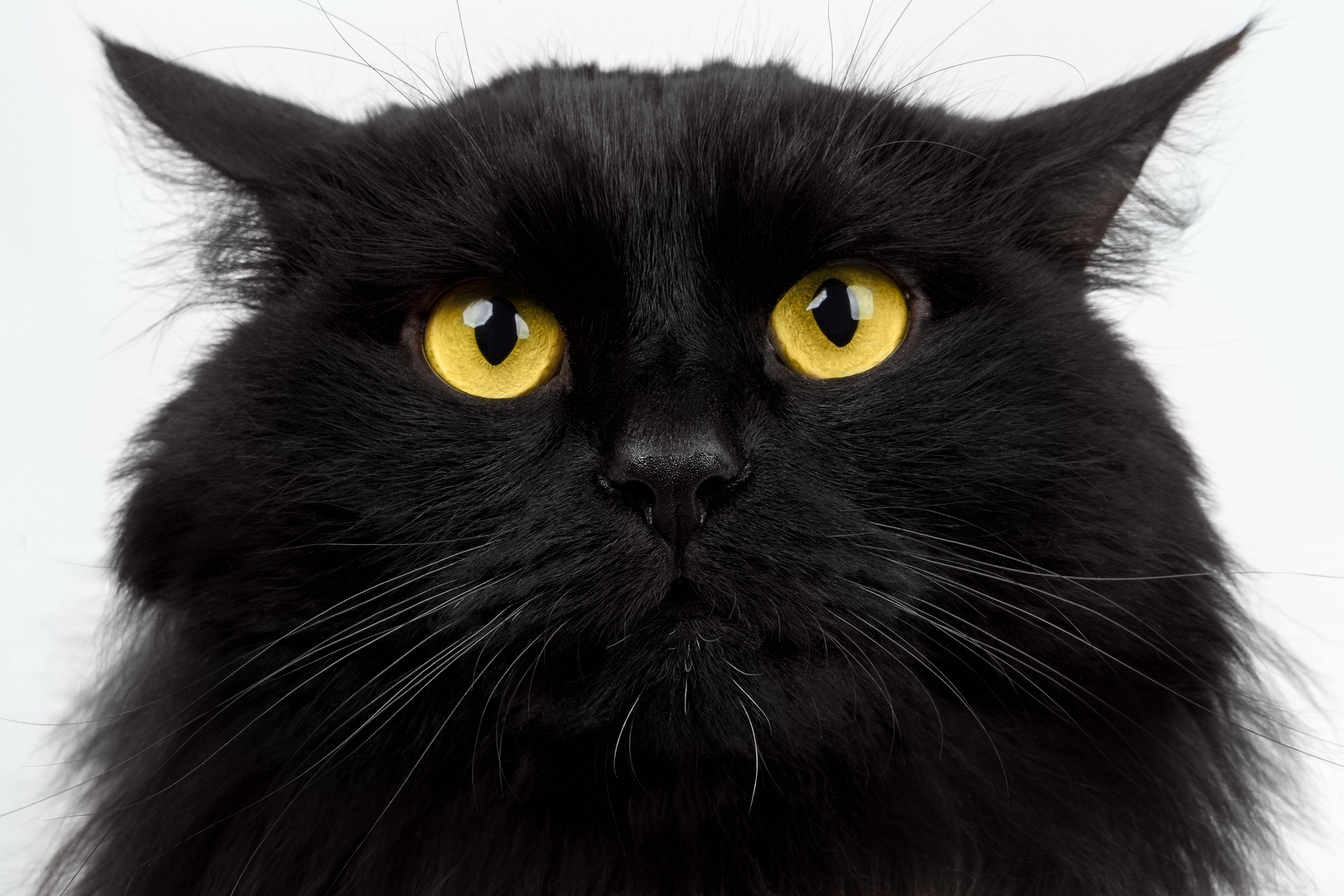
No one knows for sure if paraffin candles cause cancer, but there are at least 4 cancer-causing chemicals associated with paraffin candles.
The EPA lists these chemicals on their website:
1) Benzene (EPA classification as Group A, known human carcinogen)
2) Carbon Tetrachloride (EPA classification as Group B2 probable human carcinogen)
3) Trichloroethane (EPA classification as Group C, possible human carcinogen)
4) Toluene (EPA classification as Group B2 probable human carcinogen)
It might shock you to learn that after burning just a few paraffin candles in your home, the overall effect on the quality of the air in your home could be worse than the air in major cities like Los Angeles!
Did you also know that emissions in the home are estimated to stick around for up to 10 hours after extinguishing a candle?
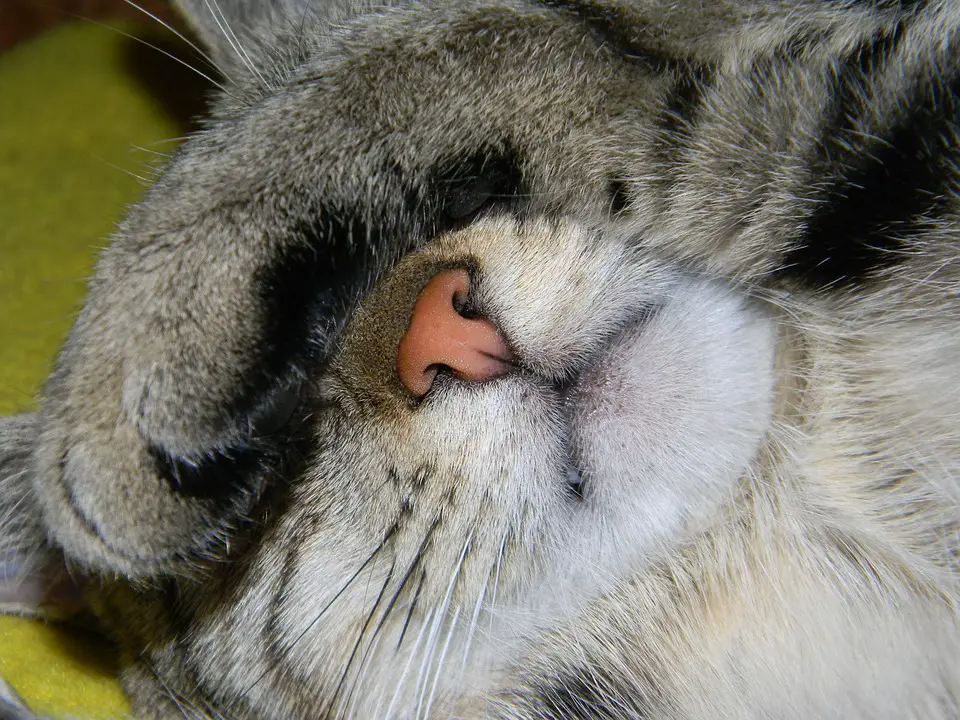
Not only is your health affected, but the health of your children and pets as well.
This is a serious problem considering that air borne soot can penetrate the deepest areas of the lungs and the lower respiratory tract. People who burn paraffin candles may be exposing themselves to inflammatory agents and carcinogens which may lead to increased risk of cancer, neurological disease and acute aggravation of existing respiratory diseases such as asthma.
Another study by Dutch scientists, where they measured the air particles in churches that burned candles for up to nine hours at a time, found 10 times as many damaging free radicals (molecules that can cause cancer) in the air inside the churches as they did in the air beside a highway.
Alternatives – A Breath of Fresh Air
All is not lost. There are plenty of safe options. For example, Sandie Lee from PawedIn says…
“If you want a welcoming scent in your home, try simmering cloves and cinnamon sticks in a small pot of water. It’s all natural and no harm will come to Kitty…just be sure to keep on eye on the water level so it doesn’t completely boil away.”
If you prefer candles, the increasing popularity of organic wax candles presents us with a healthy and environmentally friendly alternative. Look for candles made from bee’s wax, coconut wax or even soy wax (preferably organic).
Sure, they’ll be a bit more expensive, but they’ll burn clean and generally burn much longer than paraffin based candles. Plus they’ll be safe for your health and the environment.
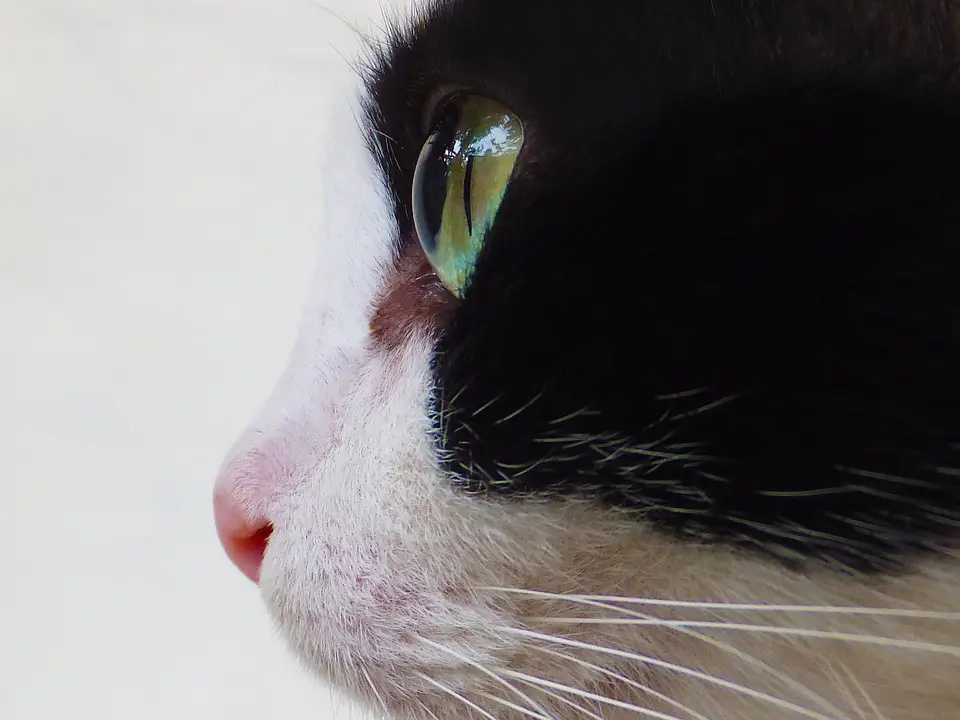
Some of the surprising benefits of bee’s wax or coconut wax candles include:
- Burn with no toxins, carcinogens or choking soot
- Burn up to 50% longer than paraffin candles
- Cruelty-free, contain no animal fats
- Non-toxic, biodegradable, derived from a renewable resource
- Better for the environment
- Use no nasty chemicals to release fragrance
Summary
We hope this helped you make ‘scents’ of the need to choose carefully before burning just any candle or melt in your home!
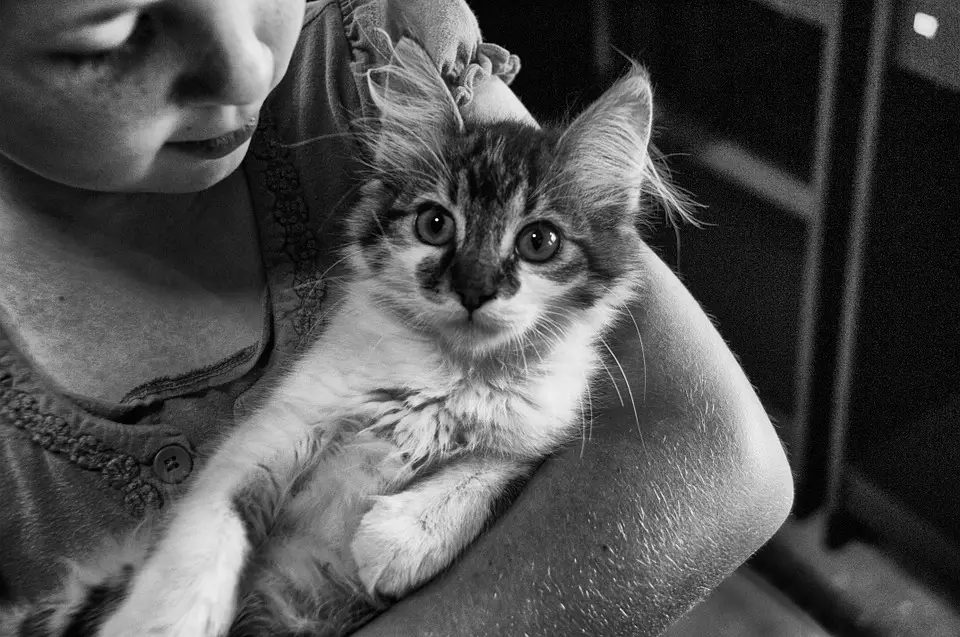
Carol from Tabby James says…
“I’ve refrained from using scented candles in the past because my cats cough from them. I’m glad there’s now an alternative”
Additional Resources:
Woman’s Day: New Study Finds Scented Candles and Air Fresheners Pose Dangerous Health Risks
Wellness Mama: Why I Don’t Use Scented Candles

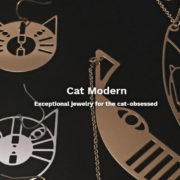


The animal fat bothered me even more than the poisons in the candle – thanks for writing about this.
We have candles that are a paraffin/soy mix in our home. The scary thing is that they say right on the label that they’re “veterinarian-recommended”. We’ll be getting Paw Melts ASAP!
I can’t get a real answer to my actual real inquiry…I don’t burn candles at all…my question is if I have a candle that’s never been burned or lit, it’s a very strong smell anyway and it’s still in a plastic bag in my closet…it has a very strong scent of it through my livingroom….does just the smell hurt my cat???
Thanks for this information. Scented candles and essential oils are all “up in the air” right now. I have always preferred soy candles.
This is not a topic that is up in the air. There are well documented facts on the subject! See just a few below;
Most scented candles are a dangerous cocktail of cancerous chemicals while Essential oils are plant based, typically obtained by a natural distillation process.
As for Soy…
1. Most soy candles on the market are not 100% soy, and contain a high percentage of poisonous paraffin.
2. All soy candles are chemically processed from the oil of genetically modified (GMO) soybeans that are commercially farmed with pesticides.
3. It’s claimed that soy’s greatest advantage is that it is completely renewable however, this is deceptive; all soy processed for soy candles are commercially farmed using high intensity commercial farming practices with fertilizers, herbicides, pesticides and chemicals, and ALL from genetically modified GMO seeds.
4. From a health point; Soybeans contain phytoestrogens, which mimic the body’s natural estrogen hormones.
5. Phytoestrogens are so strong that a baby consuming only soy formula is consuming the equivalent hormones of 4 birth control pills a day!
6. Ingesting soy for women, can cause estrogen dominance, which has been linked to infertility, menstrual troubles and cancer. Having had breast cancer this is not something I would wish for anyone.
7. For men, soy can lead to a testosterone imbalance, infertility, low sperm count, and increased risk of cancers.
8.If you are going to consume soy, fermented is the least harmful state.
9.*Rule of Thumb: if you can’t pronounce the ingredient or if the Latin name is not mentioned in conjunction with the raw ingredient don’t use it.
In closing if you are looking for a safety why on earth would you consider soy for your family?
The Little Known Soy-Gluten Connection – The Weston A. Price Foundation
https://www.westonaprice.org/health-topics/soy-alert/the-little-known-soy-gluten-connection/
I did not know this but the candles are going into the garbage today.No wonder my cat and I are stopped up and coughing all the time.As owner of 8 purr-babies and 3 doggies I owe you our health.
Wow I did not know any of this I burn candles , use wax melts and air wick freshness I have 4 cats and a dog Niw I don’t trust anything So if u don’t like the faint smell of animals then don’t come to my house 🤷♀️
I make my own homemade soy candles from 100% organic, non-GMO soy wax flakes. I use essential oils for fragrance, but I don’t use a lot. My cats are fine, And so are we.
According to veterinary websites, cinnamon and cloves are particularity toxic to cats because their livers can’t filter them.
Only toxic if ingested. They are not toxic as an inhalant.
I burned a candle for most of the day that I bought from a popular candle shop and the next day my cat was very sick and we made an emergency trip to the vet. They thought she might be going into liver failure. She is fine now. I’m not not sure if it was the candle, but that is the only thing that was different. No more candles unless they are made specifically for cats and I’m still hesitant. It will be awhile before I light another candle or use essential oils around pets.
what about scentsy bars? My cat just died and we don’t know whey but I have melted a scentsy bar for a few hours since Christmas, and not every day.
I have a lot of candles, but I would never burn one. They are okay for effect but they are dangerous because of the open flame, never mind the ingredients! Hoping everyone who shares life with cats will rethink this. There are flameless candles if people want that effect. Be careful with the scents, though.
I currently have 12 cats, but have had as many as 17 at one time, and I don’t burn any candles in my house! TOO dangerous for them! They don’t really understand fire and furry tails, ears and paws can get hurt too easily. Just not worth it. I’d rather have the cats than the candles!
You’re so right @KatMuster candles are soo incredibly dangerous to use around cats even if on a high shelf or somewhere you think they wouldn’t be able to reach or get near ..I don’t know why any cat parents would take the risk of burning them! and that’s even before learning about the health implications of breathing in their toxic fumes!
Oh my god i didnt know this ,till my auntie visited for an hour and her eyes were stinging so all my plugins have gone in the bin and all my candle are new spent a fortune, i love my household smelling nicec can i use zoflora to clean my floors